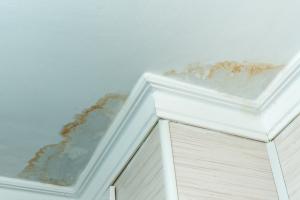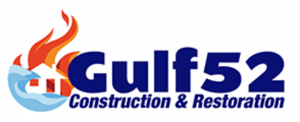Understanding How Water Damage Can Lead to Structural Issues in Residential Properties
Earl Carr, Jr., president of Gulf 52 in Hammond, Louisiana, emphasizes the long-term implications of untreated water damage and the need for thorough remediation.
“Water affects materials on a microscopic level before any visible signs appear. Moisture trapped behind walls, under flooring, or in crawl spaces gradually weakens structural components and fosters decay. What begins as a minor leak can eventually become a threat to the building’s integrity,” said Carr.
The Hidden Progression of Water Damage
Water damage is not always immediately apparent. Leaks from roofing, plumbing, or exterior drainage can infiltrate wall cavities, flooring systems, and insulation without triggering obvious signs. Over time, saturation leads to wood rot, rusted fasteners, delamination of engineered lumber, and warping of critical framing members.
Moisture accumulation is particularly damaging to wood framing and subfloor systems. Wood is highly susceptible to fungal decay when its moisture content remains elevated over an extended period. As decay progresses, the affected materials lose their load-bearing capacity, increasing the risk of sagging floors, cracking drywall, or framing failure.
In homes with slab foundations, water intrusion beneath the slab may erode the soil or compromise compaction, leading to uneven settling or slab cracking. These shifts can create stress points throughout the structure, causing doors to misalign, windows to stick, or floors to become uneven.
Weakening of Load-Bearing Components
Excessive moisture around load-bearing components, including sill plates, beams, and columns, can lead to gradual loss of support. As structural wood rots, it compresses under the weight of the home. This condition creates visible signs such as bowed walls, ceiling separations, and unlevel surfaces.
In two-story homes, compromised framing on the first floor may result in structural misalignment in the upper story. This affects drywall seams, flooring transitions, and roof trusses. Repairing these types of damages often requires removing finishes and reinforcing the structure from within—making early intervention critical.
Mold and Secondary Structural Degradation
Water damage frequently results in mold growth, which further deteriorates organic materials. While mold is primarily viewed as a health concern, it also breaks down cellulose-based products like wood, drywall, and insulation. In areas with prolonged exposure, structural sheathing and studs can soften and weaken, losing their design load capacity.
In addition, mold may grow undetected in unconditioned spaces such as attics, basements, and crawl spaces. Over time, this creates widespread material breakdown that undermines the entire framing system.
If remediation efforts fail to remove both the water source and the fungal contamination, the structural degradation continues even after the initial incident appears resolved.
Impact on Fasteners and Metal Connectors
Framing connectors, nails, screws, and structural brackets are all vulnerable to corrosion when exposed to consistent moisture. This corrosion weakens the mechanical bond between structural elements. In coastal or humid environments, galvanic corrosion may also occur when mixed metals interact under moist conditions.
Morgan Thomas
Rhino Digital, LLC
+1 504-875-5036
email us here
Visit us on social media:
Facebook
Legal Disclaimer:
EIN Presswire provides this news content "as is" without warranty of any kind. We do not accept any responsibility or liability for the accuracy, content, images, videos, licenses, completeness, legality, or reliability of the information contained in this article. If you have any complaints or copyright issues related to this article, kindly contact the author above.
Polaris Adds New Solar Surface Cleaner to Cordless Lineup
Powerhouses for Progress: Adrienne Maloof and Kristen Dahlgren Host “It’s Up to Us” Women’s Health Benefit
SYDNEY BASED LIFESTYLE MAGAZINE COMMENCE FEATURES ON AN ARRAY OF HOME ELECTRICAL MATTERS
Kalendarium
Więcej ważnych informacji
 Jedynka Newserii
Jedynka Newserii

 Jedynka Newserii
Jedynka Newserii

Prawo

400 gmin w Polsce nie ma na swoim terenie apteki i sytuacja co roku się pogarsza. Samorządowcy apelują o zmiany w prawie
W ciągu ostatnich kilku lat, od wejścia w życie przepisów Apteka dla Aptekarza, zamknięto ponad 2,2 tys. aptek w Polsce, a około 400 gmin nie posiada na swoim terenie apteki. Trzech na pięciu Polaków, aby kupić leki, musi się udać po nie do innej miejscowości. Sygnatariusze listu otwartego do minister zdrowia przygotowanego przez Koalicję „Na pomoc niesamodzielnym” apelują o zmianę priorytetów w legislacji dotyczącej rynku aptek. Wzywają też do podjęcia systemowych działań przeciwdziałających wykluczeniu zdrowotnemu ze względu na miejsce zamieszkania.
Bankowość
1 mln zł na innowacyjne rozwiązania dla miast. Granty mogą otrzymać naukowcy i start-upy

Niskoemisyjny transport, oszczędzanie zasobów, zarządzanie odpadami czy walka z zanieczyszczeniami – to część wyzwań, które stawia przed miastami szybko rosnąca liczba mieszkańców. Na przynajmniej część z nich odpowiedzią mogą być innowacje, które mogą pomóc także w adaptacji miast do zmiany klimatu. To właśnie innowacyjnych rozwiązań wspierających zrównoważony rozwój miast poszukuje ING Bank Śląski w nowej edycji Programu Grantowego. Do młodych naukowców i start-upów trafi 1 mln zł.
Telekomunikacja
Obciążenia regulacyjne uderzają w branżę nowych technologii i start-upy. To może hamować innowacje

Nadmierne obciążenia biurokratyczne i wysokie koszty prawne są wskazywane przez wiele start-upów jako bariery, które są najtrudniejsze do pokonania w ich działalności – wynika z raportu „Polskie Startupy 2024”. To sprawia, że część z nich szuka możliwości przeprowadzki za ocean – ze stratą dla innowacyjności i konkurencyjności polskiej gospodarki. Również w branży ICT o potrzebie deregulacji mówi się od lat, bo to przeszkadza jej w globalnym wyścigu technologicznym.
Partner serwisu
Szkolenia

Akademia Newserii
Akademia Newserii to projekt, w ramach którego najlepsi polscy dziennikarze biznesowi, giełdowi oraz lifestylowi, a także szkoleniowcy z wieloletnim doświadczeniem dzielą się swoją wiedzą nt. pracy z mediami.








.gif)



